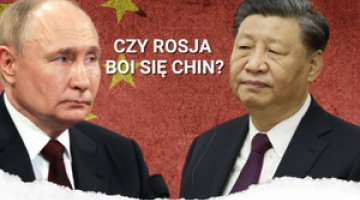A compromise over the sixth sanctions package
At night on 30 May, the European Council managed to reach an agreement on the sixth package of sanctions against Russia. Although the details of the arrangements are yet to be made public, media reports show that the leaders of the EU Member States have agreed to impose restrictions on the import of Russian oil, with a temporary exemption for oil imported to the EU via oil pipelines (this derogation was primarily demanded by Hungary). The ban is to be introduced within six months of the EU Council decision on this matter entering into force. However, conclusions reached at the summit envisage that the European Council will address the issue of temporary derogation for oil supplied via pipeline as soon as possible. The European Council summit also saw agreement on the imposition of an embargo on the import of Russian petroleum products within eight months. The European Council also obliged the EU Council to adopt a new sanctions package without delay, ensuring a properly functioning EU single market, fair competition, solidarity among member states and a level playing field, including with regard to reducing the dependence on Russian fossil fuels.
According to the announcements made by President of the European Council Charles Michel and President of the European Commission Ursula von der Leyen, the embargo on oil imports from Russia by sea will affect more than two thirds of Russian gas supplies to the EU. Representatives of the EU authorities added that, taking into account the discontinuation of oil imports by the end of 2022 announced by Poland and Germany, total oil supplies from Russia to the EU may decrease by as much as 90% by the end of the year.
In addition, under the current sanctions package, three more Russian banks are to be disconnected from the Worldwide Interbank Financial Telecommunication (SWIFT), including the largest state-owned bank, Sberbank. According to media reports, the state-owned Rosselkhozbank (sixth in terms of assets) and the private Moscow Credit Bank (seventh) will be added to this list.
Furthermore, personal sanctions will be imposed on a further 58 people, including Kirill, the Patriarch of Moscow and all Rus’, Alina Kabaeva (who is believed to be President Vladimir Putin’s former life partner) and individuals responsible for waging the war in Ukraine. In addition, three Russian TV channels are to be included in the sanctions lists. They will not be able to broadcast their signal to the territory of the EU, including via satellite.
On 31 May, Gazprom suspended gas supplies to the Dutch energy company GasTerra which had refused to pay for Russian gas in rubles. Under the contract, which is valid until 1 October 2022, the company should still receive 2 billion m3 of gas. The Danish company Ørsted, which intends to pay for the Russian gas in euros on 31 May, is also preparing for supplies to be cut off. According to the agreement which is binding until 2030, the company should receive 1.8 billion m3 of gas annually from Russia.
On 29 May, the President of Serbia, Aleksandar Vučić, announced that a new three-year gas contract had been agreed with President Putin (the current gas supply contract expires on 31 May this year). The details are to be agreed directly with Gazprom. However, according to Serbia, the terms of the contract are expected to be exceptionally favourable for it. The gas prices will be indexed to oil prices. In effect, Serbia will pay between US$310 and US$408 per 1,000 m3 of Russian gas. It is planned that the contract will be signed during Russian Minister of Foreign Affairs Sergey Lavrov’s visit to Serbia in June.
Issues outside the energy sector
China has closed its airspace to Boeing and Airbus aircraft leased by Russian carriers in the West. In May, they were unable to provide the Chinese regulator with documents confirming that the imported machines had been removed from foreign registers. At the end of February this year, Western countries imposed a ban on co-operation with Russia in air transport as part of the sanctions. The ban includes suspending leasing services. This should mean Russian carriers return about half of the aircraft they use to their Western owners. However, they kept the aircraft, and President Putin ordered that they be re-registered to Russia.
President Putin announced that, starting from 1 June 2022, the government will increase the minimum wage, the minimum subsistence level and the pensions of non-working elderly people by 10%. As a result, the minimum subsistence level will increase to 15,279 rubles (i.e. the equivalent of US$245.5) per month. The planned increase will not, however, cover the fall in the real value of these payments, as annual inflation in Russia is currently around 17%. According to the government’s forecasts, real incomes of citizens are expected to decrease by 7% throughout 2022.
In May, the Ministry of Economic Development of the Russian Federation presented a new scenario for the development of the situation in the country. The ministry forecasts a decline in GDP in 2022 by approximately 7.8% (earlier estimates were of a 8.8–10% fall), and a further decline by 0.7% in 2023 (instead of an increase of 1.3%). In turn, the Central Bank of Russia maintains its previous forecasts of a 8–10% decline in GDP in 2022 and a 0–3% decline in 2023. It is assumed that the sanctions will affect the economy to the greatest extent in the fourth quarter of 2022.
Commentary
- The sixth package of sanctions, announced by the president of the European Commission on 4 May this year, provoked a great deal of controversy among the member states. It took almost a month to reach a compromise, and some of the restrictions were eased throughout this period. The political agreement on the embargo on imports of Russian oil and petroleum products is a success for the EU and could have a very strong impact on Russia’s economy and energy sector. The EU is still the main market for exports of Russian oil (its share in crude oil exports reached approx. 50% in 2021). In turn, the value of exported crude oil and petroleum products last year accounted for approximately 74% of the total value of Russia’s oil and gas exports. Given the high prices of oil and gas and a decline in Russia’s trade volume outside the energy sector, the share of the oil and gas sector in the revenues to the Russian budget has increased significantly this year. In 2021, it was around 36%, in the period from January to April this year it increased to 48%, and in April alone it reached the level of 63%. In addition, media reports show that although the sixth package of sanctions will not include restrictions on tankers transporting Russian oil to third countries, it will include a ban on the provision of insurance services to vessels which Russia uses to export oil to these markets. This move could have serious consequences for Moscow’s efforts to diversify its sales markets and redirect oil exports to Asian countries.
- The severity of the oil restrictions will, however, depend on the final shape they take and how determined the member states prove to be when implementing them. The European Council’s conclusions suggest that many details of the sanctions will be consulted further, so that final decisions can be taken at the level of the EU Council. According to media reports, some countries importing Russian crude oil or petroleum products may be granted transitional periods for the implementation of the restrictions. Bloomberg has reported that Bulgaria may be allowed to apply a transitional period for crude oil imports to June or December 2024, while Croatia may be granted a derogation for selected petroleum products. Furthermore, there is no clarity regarding the full scope of the financial and political concessions applied to persuade Hungary to change its position on the sanctions (except for the exclusion of oil supplies via Druzhba from the embargo). At the present stage, it is unknown what mechanisms will be adopted to protect EU member states against unfair competition from companies based in countries that will continue to import Russian oil via pipelines. According to media reports, the restrictions may include a ban on the re-export of oil imported by EU countries via Druzhba and the exclusion of the possibility of exporting petroleum products made from Russian oil to other EU countries. Although the exemption for the Druzhba oil pipeline will in practice only apply to supplies via its southern line (exports to Slovakia, the Czech Republic and Hungary, which account for about one third of the total volume), the fact that the end date of the transitional period has not been set may have a negative impact on the pace of the implementation of the embargo by other EU countries. It cannot be ruled out that if the armed conflict between Russia and Ukraine ends or is frozen within a few months, it will turn out to be difficult to implement the proposals to extend restrictions on oil supplies via pipelines. This, in turn, may encourage countries that have so far imported Russian gas by sea to ease their restrictions in this regard.
- It is very likely that, in response to EU decisions, Moscow, apart from criticising the rationale of the EU sanctions policy, will announce plans to diversify the directions of oil exports. Already in April, Vladimir Putin instructed the government to prepare a list of projects aimed at achieving this goal by 1 June, and to revise the country’s energy strategy by mid-September. It cannot be ruled out that Moscow will respond to the EU’s oil sanctions by taking more severe measures, including limiting gas supplies to a wider group of EU recipients (so far, the export of gas has been suspended to countries where companies have refused to pay for it in rubles: Poland, Bulgaria, Finland, the Netherlands and Denmark).
- The decline in Russian revenues from the export of energy resources, especially oil, will strongly affect Russian public finances. Despite the fall in tax revenues on the domestic market, the Russian federal budget in the first four months of 2022 had a surplus of over 1 trillion rubles (around US$12 billion at the average exchange rate for that period), mainly due to high raw material prices. Since the beginning of the year, the government has been consistently increasing direct spending on national defence. In April, it allocated 627 billion rubles (approx. USD$8 billion) for this purpose, i.e. almost three times more than in January this year. The imposition of the EU oil embargo will not have an immediate effect on Russia. The government has large reserves amounting to approximately 12 trillion rubles, i.e. the equivalent of approximately 50% of all federal budget expenditure planned for 2022. It is not known to what extent Russia will be able to redirect oil supplies to other markets, mainly those in Asia, but due to the reserves, the government could still finance its expenses for six months, even if the budget ceased to receive any revenue whatsoever.
- Since Sberbank and two more Russian banks have been cut off from the SWIFT system, they will encounter significantly more difficulty when handling foreign financial operations. Above all, it will increase their cost and lengthen the execution time, but the banks’ ability to perform them will not be completely blocked. In recent months, these banks have been preparing for this decision and developing alternative communication systems. As a result, once the sixth package of sanctions is introduced, only ten Russian banks will be cut off from the SWIFT system (seven of them were disconnected in March), and the vast majority of entities operating in that market will be able to continue to use this service.





